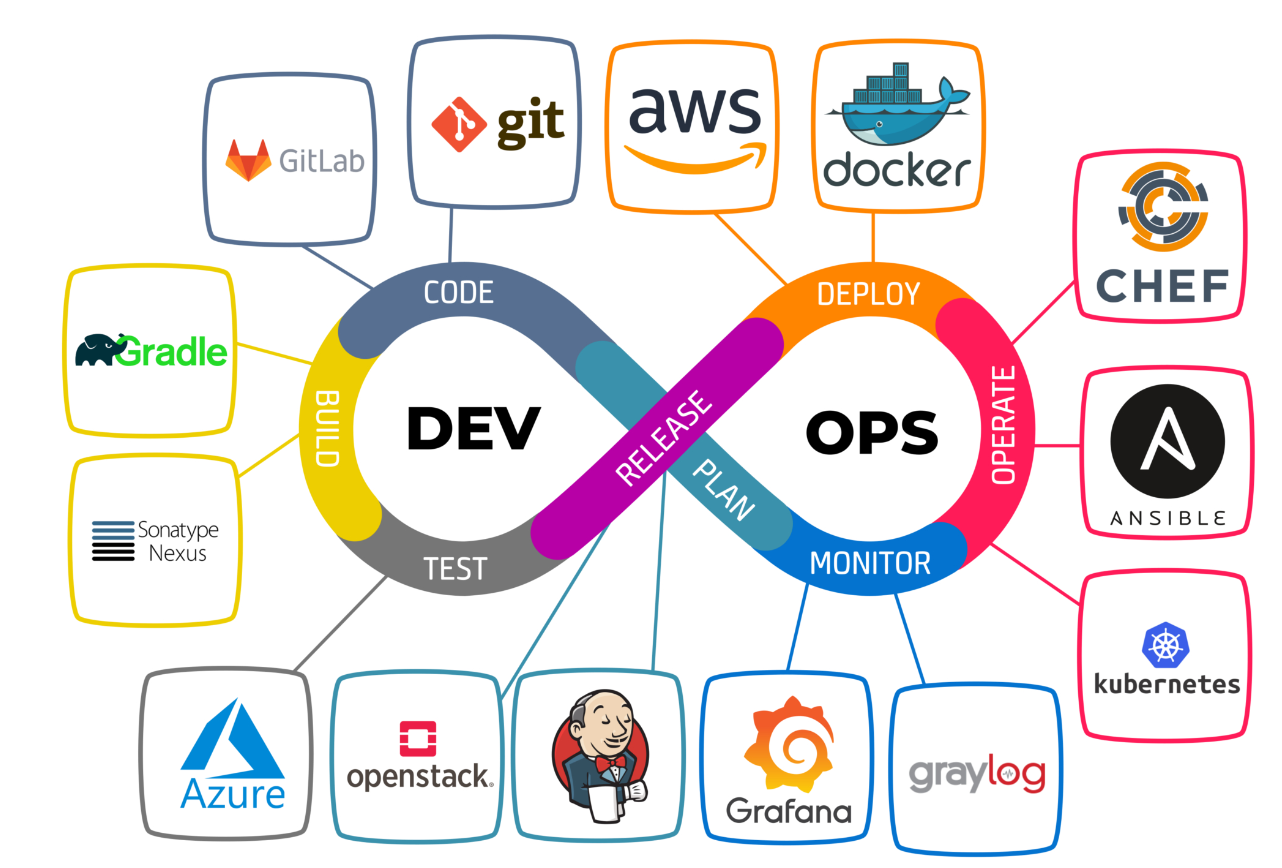Best DevOps Tools in 2024
DevOps is a set of practices, principles, and cultural philosophies that aim to streamline and integrate the processes between software development (Dev) and IT operations (Ops). The primary goal of DevOps is to shorten the software development lifecycle, increase the frequency of software releases, and improve the quality and reliability of software applications
The DevOps landscape is constantly evolving, with new tools and platforms emerging all the time.The top DevOps tools in 2024 will likely be a mix of existing and emerging technologies.
Some popular DevOps tools across various categories
-
Continuous Integration/Continuous Deployment (CI/CD):
- Jenkins: An open-source automation server widely used for building, testing, and deploying software.
- GitLab CI/CD: Integrated CI/CD capabilities within the GitLab platform, providing version control, CI, CD, and container registry.
- CircleCI: A cloud-based CI/CD platform that automates software development processes.
- GitHub Actions: Allows automating workflows directly within GitHub repositories for CI/CD and other tasks.
-
Configuration Management:
- Ansible: An open-source automation tool for configuration management, application deployment, and task automation.
- Puppet: A configuration management tool for managing the configuration of servers at scale.
- Chef: A powerful automation platform that transforms infrastructure into code.
-
Infrastructure as Code (IaC):
- Terraform: An open-source tool for building, changing, and versioning infrastructure safely and efficiently.
- AWS CloudFormation: Provides a way to create and manage a collection of related AWS resources.
- Azure Resource Manager (ARM) Templates: Allows defining the infrastructure and dependencies for Azure solutions in code.
-
Containerization and Orchestration:
- Docker: A platform for developing, shipping, and running applications in containers.
- Kubernetes: An open-source container orchestration platform for automating deployment, scaling, and management of containerized applications.
- Red Hat OpenShift: A Kubernetes-based platform for container orchestration and management.
-
Monitoring and Logging:
- Prometheus: An open-source monitoring and alerting toolkit designed for reliability and scalability.
- Grafana: An open-source analytics and monitoring platform that allows querying, visualizing, and alerting on metrics.
- ELK Stack (Elasticsearch, Logstash, Kibana): A set of tools for centralized logging, log processing, and visualization.
-
Collaboration and Communication:
- Slack: A popular collaboration platform for teams, offering channels, messaging, and integrations with other tools.
- Microsoft Teams: Provides chat, video meetings, file sharing, and integrations with Microsoft 365 apps.
- Mattermost: An open-source, self-hosted messaging platform with features similar to Slack.
-
Version Control:
- Git: The most widely used distributed version control system for tracking changes in source code during software development.
- GitHub: A web-based platform for hosting and collaborating on Git repositories, offering features like pull requests, code review, and issue tracking.
- GitLab: A web-based DevOps lifecycle tool that provides Git repository management, CI/CD, and collaboration features.
